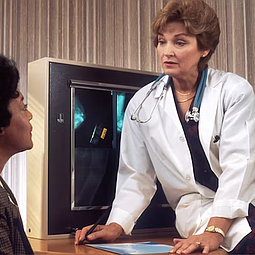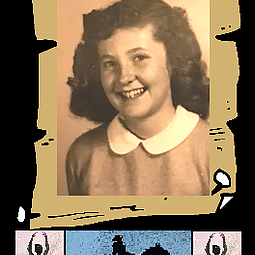The health risks of being a full-time caregiver to your spouse
April 11, 2012 at 6:00 a.m.
Being the family caregiver can be a thankless job, but did you also know that it could be a dangerous one? Just because you're not at risk of physical injury doesn't mean that taking on a certain job won't be detrimental to your health. In the case of the family caregiver, one of the greatest occupational hazards is falling into poor health. Below are the most common side effects suffered by people who become 24/7 caregivers to their spouses or other family members.
Exhaustion: This is one of the most common risk factors among people who take on the role of family caregiver. In many cases, these people also work fulltime jobs and spend every other waking hour -- and sometimes many hours throughout the course of the night -- taking care of a sick or disabled family member. The natural byproduct of this round-the-clock duty is physical exhaustion and lost sleep, which can be a serious detriment to a person's health.
Depression: Studies of family caregivers show that the vast majority, as many as 90 percent, say that the duties of their self-assumed role have led to depression.
No attention to personal health: When you're busy caring for someone else around the clock, it's hardly possible to think about your own physical maintenance. People who are family caregivers are much more likely to miss routine doctor appointments for themselves, leaving them at greater risk for the development of chronic health issues.
Bad eating habits: Extremely common among those who spend their waking hours looking after another person's health. In many cases it can lead to malnutrition, as it can lead to obesity if the only source of sustenance is junk food or fast food.
No exercise: People stuck in the role of round-the-clock caregiver are rarely able to make time for themselves, and in the rare occasion that that takes place, exercise is usually the last thing that someone wants to do -- especially if physical exhaustion and lack of sleep has already taken its toll. But without the opportunity to get much needed exercise, the health of a caregiver can begin to deteriorate, making them less capable of taking care of themselves or anyone else.
Increased drug and alcohol use: Frequently reported by family caregivers as a result of taking on the burden of care. Many turn to drugs and alcohol as a way of dealing with the resulting depression, or in the hopes of finding relaxation during the times when they're not taking care of a loved one.
There are plenty of resources available for people to get caregiver support, whether all that's needed is an ear to listen or an actual physical body to help with the care of an ill or disabled family member. If you've been caring for someone in your family so long and hard that your own health has begun to deteriorate as a result, it's time to consider finding help in the form of professional health care service providers that can come to your home to perform certain tasks while you tend to your own needs for a change.
Content Provided by Spot55.com





